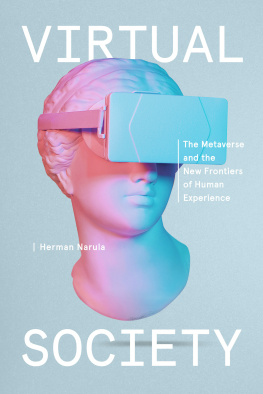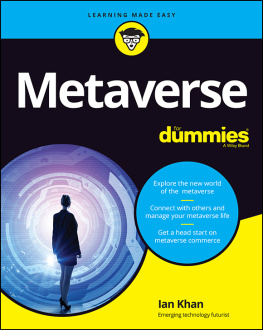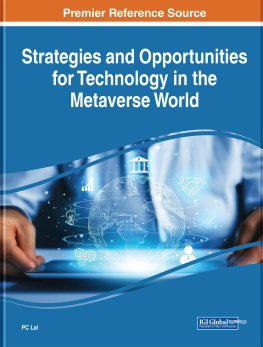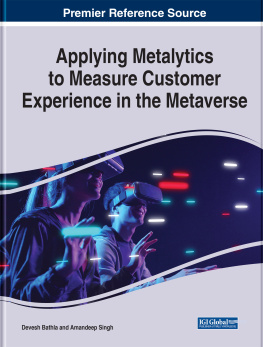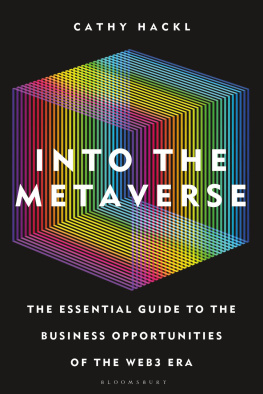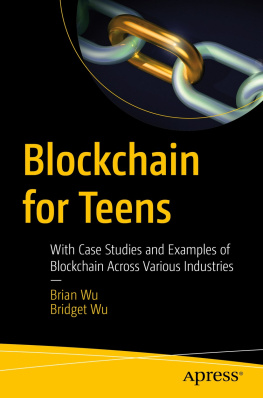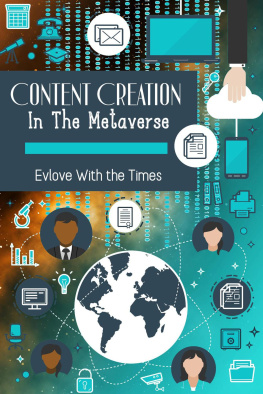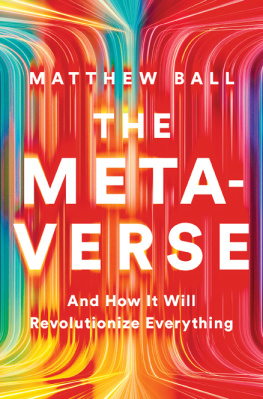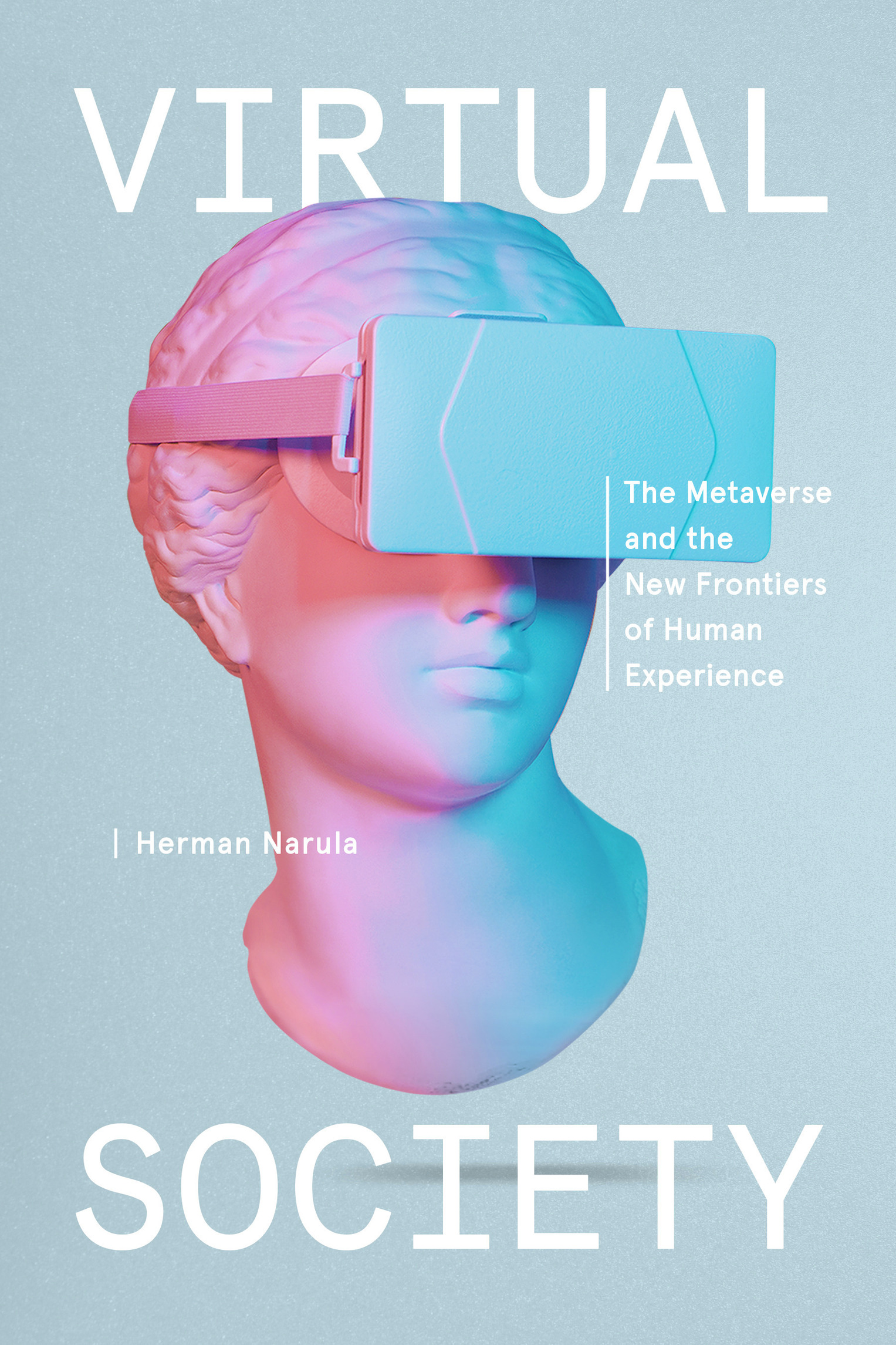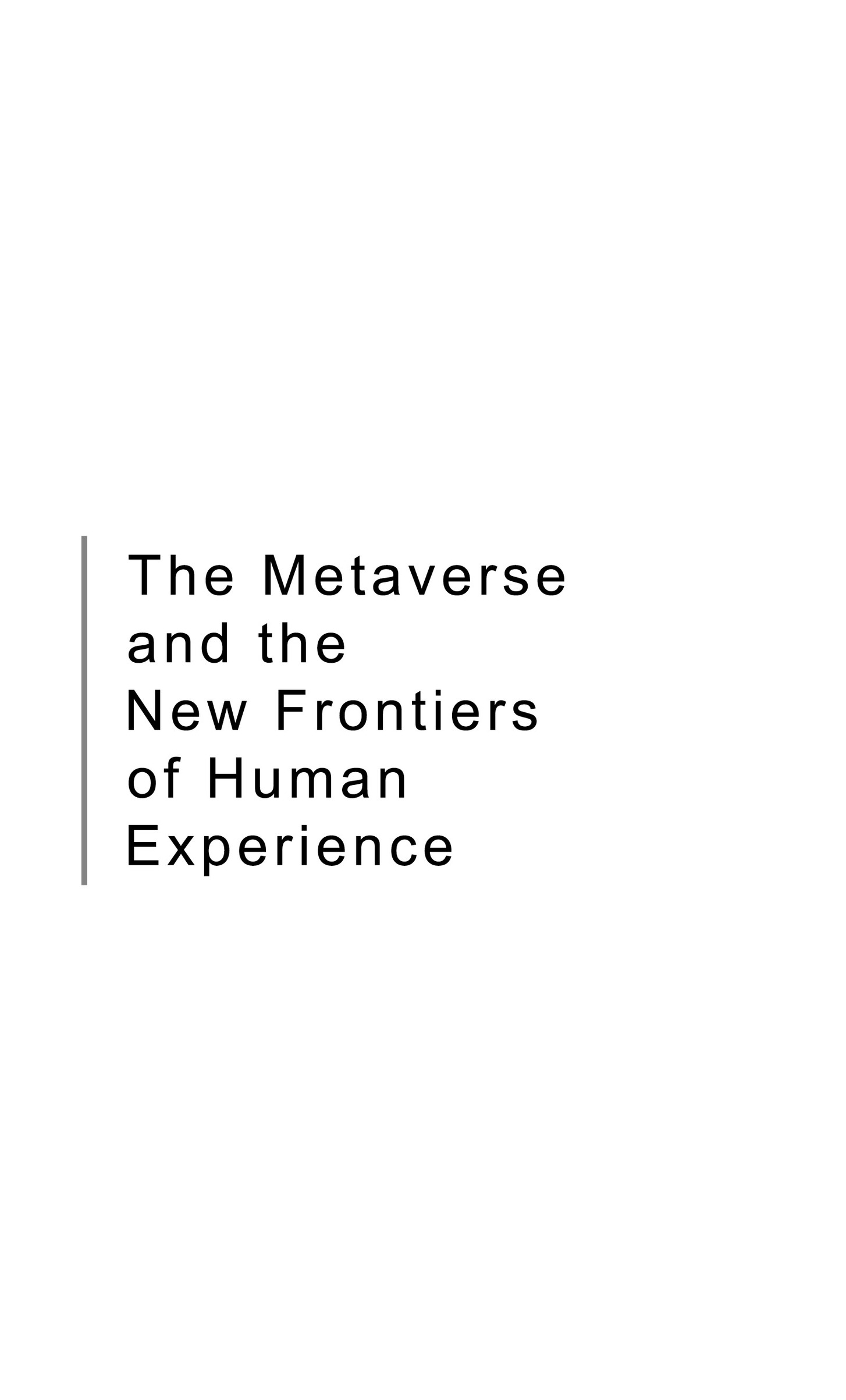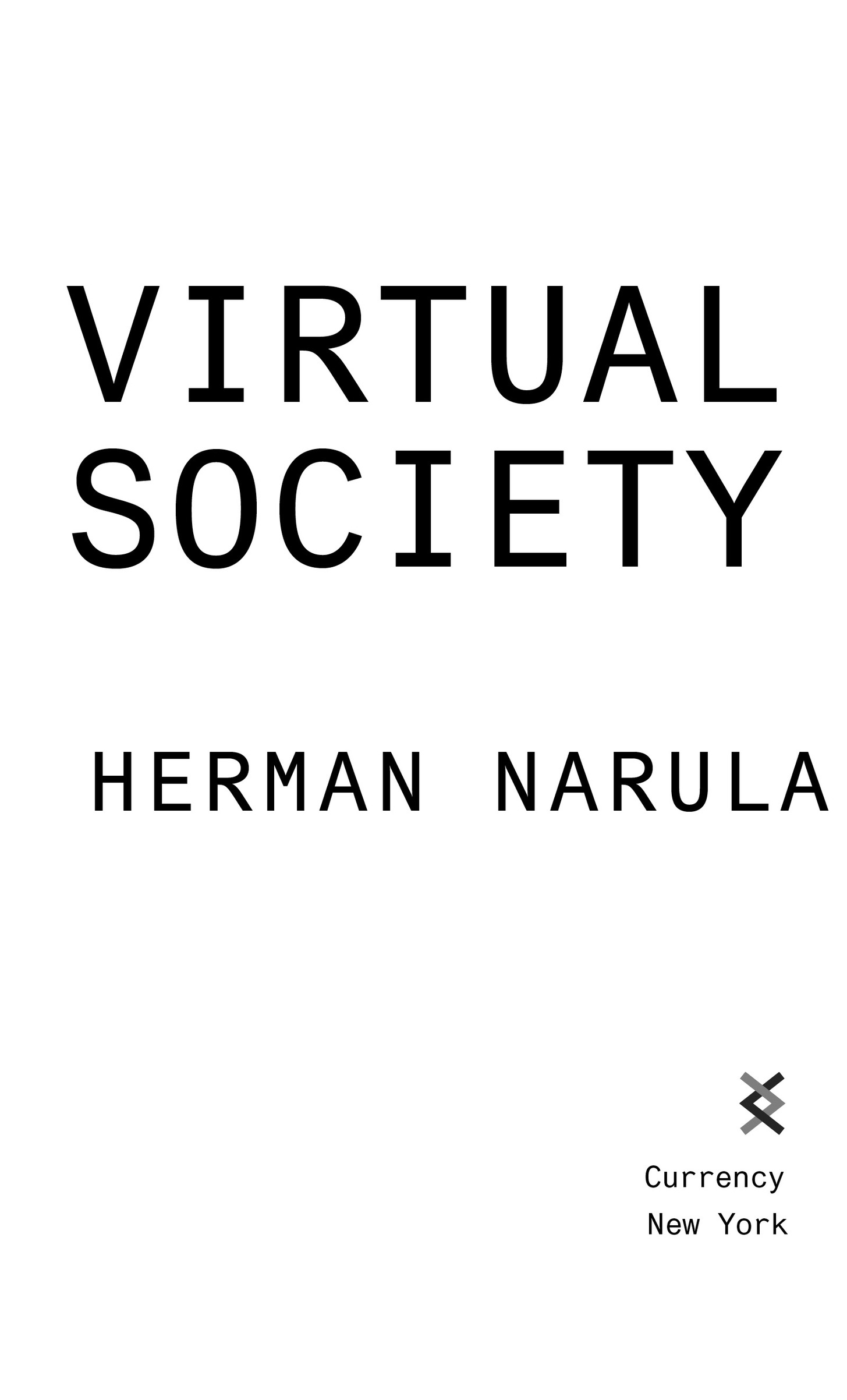Herman Narula - Virtual Society: The Metaverse and the New Frontiers of Human Experience
Here you can read online Herman Narula - Virtual Society: The Metaverse and the New Frontiers of Human Experience full text of the book (entire story) in english for free. Download pdf and epub, get meaning, cover and reviews about this ebook. City: New York, year: 2022, publisher: Currency, genre: Science. Description of the work, (preface) as well as reviews are available. Best literature library LitArk.com created for fans of good reading and offers a wide selection of genres:
Romance novel
Science fiction
Adventure
Detective
Science
History
Home and family
Prose
Art
Politics
Computer
Non-fiction
Religion
Business
Children
Humor
Choose a favorite category and find really read worthwhile books. Enjoy immersion in the world of imagination, feel the emotions of the characters or learn something new for yourself, make an fascinating discovery.
- Book:Virtual Society: The Metaverse and the New Frontiers of Human Experience
- Author:
- Publisher:Currency
- Genre:
- Year:2022
- City:New York
- Rating:4 / 5
- Favourites:Add to favourites
- Your mark:
Virtual Society: The Metaverse and the New Frontiers of Human Experience: summary, description and annotation
We offer to read an annotation, description, summary or preface (depends on what the author of the book "Virtual Society: The Metaverse and the New Frontiers of Human Experience" wrote himself). If you haven't found the necessary information about the book — write in the comments, we will try to find it.
This important book offers a highly persuasive argument that the metaverse, a new kind of virtual world, marks a profound next stage in this long human quest for fulfillment through creation.Chris Anderson, head of TED
The concept of the metaverse has exploded in the public consciousness, but its contours remain elusive. Is it merely an immersive virtual reality playground, one that Facebook and other platforms will angle to control? Is it simply the next generation of massive multiplayer online games? Or is it something more revolutionary?
As pioneering technologist Herman Narula shows, the metaverse is the latest manifestation of an ancient human tendency: the act of worldbuilding. From the Egyptians, whose conception of death inspired them to build the pyramids, to modern-day sports fans, whose passion for a game inspires extreme behavior, humans have long sought to supplement their day-to-day lives with a rich diversity of alternative experiences.
Rooting his vision in history and psychology, Narula argues that humans intrinsic need for autonomy, accomplishment, and connection can best be met in virtual worlds of ideas, where users have the chance to create and exchange meaning and value. The metaverse is both the growing set of fulfilling digital experiencesranging from advanced gaming to concerts and other entertainment events and even to virtual employmentand the empowering framework that allows these spaces to become networks of useful meaning.
Bloomberg Intelligence recently predicted that the metaverse will become an $800 billon industry by 2024. But its implications, argues Narula, will lead to far more awe-inspiring possibilities than a spigot of cash. The arrival of the metaverse marks the beginning of a new age of explorationnot outward, but inwardwith the potential to reshape society and open the door to a new understanding of the human species and its capabilities.
Rigorously researched and passionately argued, Virtual Society is a provocative and essential guide for anyone who wants to go beyond superficial headlines to understand the true contours and potential of our virtual future.
Herman Narula: author's other books
Who wrote Virtual Society: The Metaverse and the New Frontiers of Human Experience? Find out the surname, the name of the author of the book and a list of all author's works by series.

